With electric vehicles rapidly evolving in 2025, the Volkswagen ID.4 faces stronger competition than ever. While the ID.4 remains a practical and well-balanced electric SUV, many drivers are now searching for models that deliver longer range, faster charging, or better value for their money. This growing curiosity has created a new wave of interest in alternatives to the Volkswagen ID.4 that offer a smarter mix of performance, comfort, and price.
Choosing an EV today is no longer just about going electric. It is about finding a vehicle that fits your lifestyle, matches your daily driving habits, and feels future ready. From advanced battery technology to premium interior design, the next generation of electric SUVs is redefining what “value” truly means.
In this guide, we explore the top 10 best alternatives to the Volkswagen ID.4 in 2025, ranked by range and overall value. Each model brings its own strengths whether it is exceptional efficiency, innovative tech features, or unbeatable affordability. If you love the ID.4 but want something with a bit more excitement or practicality, this list will help you discover which electric SUV truly deserves your attention this year.
Contents
Tesla Model Y
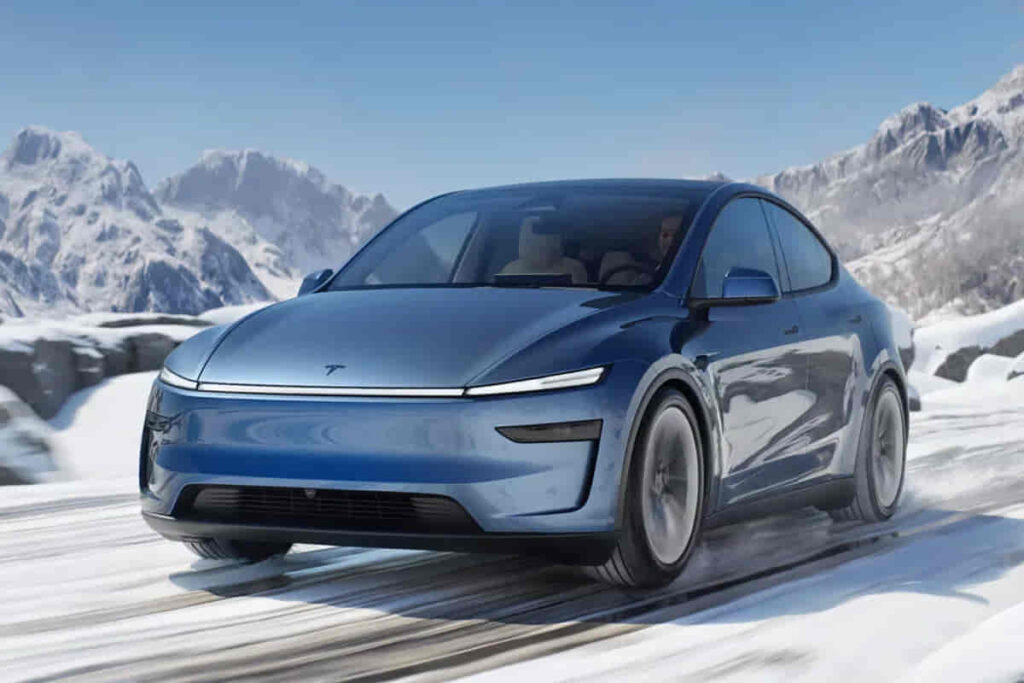
The Tesla Model Y stands out as one of the strongest alternatives to the Volkswagen ID.4 in 2025, combining impressive range, quick acceleration, and a vast charging network that few competitors can match. With an EPA estimated range of around 330 miles and access to Tesla’s expanding Supercharger infrastructure, it offers a level of practicality that makes long distance electric driving effortless.
Inside, the minimalist cabin creates an open and futuristic feel while the central touchscreen integrates every function from navigation to entertainment with seamless software updates. The driving experience feels refined yet responsive, offering instant torque and balanced handling that appeals to those who want both comfort and excitement in a daily EV.
Compared to the ID.4, the Model Y delivers stronger performance and faster charging speeds, although it comes at a slightly higher price point. Still, for many buyers, the value of Tesla’s proven technology, consistent over the air improvements, and industry leading infrastructure makes it a compelling choice. The Model Y proves that choosing an electric SUV is not just about range but about the ecosystem that supports it, positioning it firmly among the best alternatives to the Volkswagen ID.4 for 2025.
Hyundai Ioniq 5
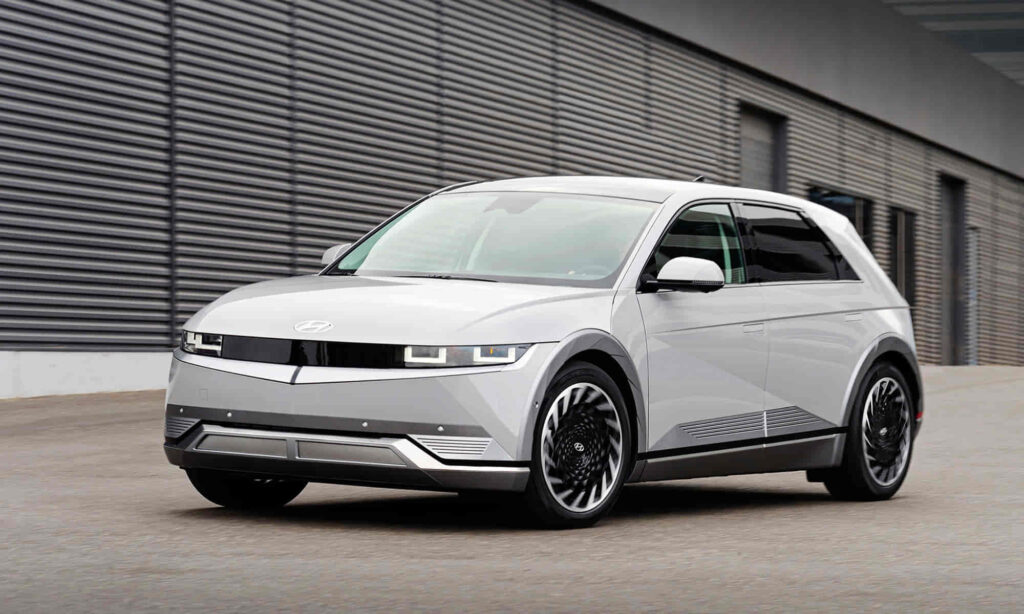
Among all the modern electric SUVs, the Hyundai Ioniq 5 has become one of the most talked about alternatives to the Volkswagen ID.4 thanks to its futuristic design and cutting edge 800 volt charging architecture. With its sharp lines and spacious interior inspired by a lounge rather than a cabin, the Ioniq 5 captures the essence of what next generation EVs should feel like.
Drivers appreciate how quickly it recharges, reaching eighty percent battery in just eighteen minutes under optimal conditions. This feature alone gives it a clear advantage over many competitors, especially for those who rely on public charging networks. Inside, the wide flat floor and adjustable second row seats provide generous comfort and flexibility, making it an excellent choice for families or tech enthusiasts seeking both practicality and innovation.
Compared to the Volkswagen ID.4, the Ioniq 5 feels more expressive in design and slightly more advanced in terms of charging efficiency. It may not have the same cargo volume, yet it compensates with superior build quality and a uniquely modern driving experience. For 2025, it stands as one of the most balanced and appealing alternatives to the Volkswagen ID.4, blending technology, comfort, and design into a single, forward looking package.
Kia EV6
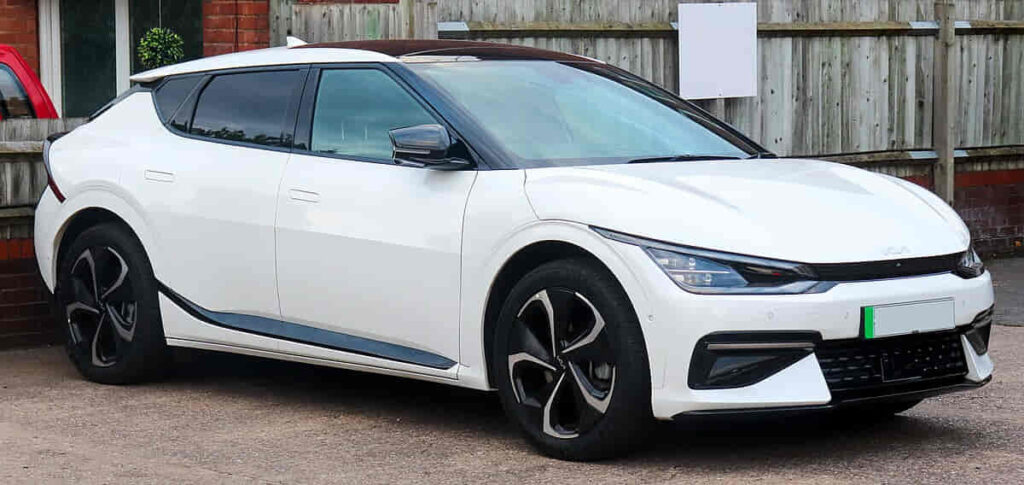
The Kia EV6 has quickly risen to become one of the most dynamic and well balanced alternatives to the Volkswagen ID.4. Built on the same advanced E-GMP platform as the Hyundai Ioniq 5, it combines bold styling with a sportier driving character that appeals to those who want a little more excitement from their electric SUV. Its sleek coupe-like silhouette and aggressive stance make it stand out immediately, while the interior feels driver focused yet refined.
The EV6 offers strong performance with its dual motor configuration, capable of delivering quick acceleration without compromising comfort. Its 800 volt architecture supports ultra-fast charging that adds real world practicality for long journeys. Inside, soft touch materials, ambient lighting, and high-resolution displays create a sense of premium quality that exceeds its price point.
When compared to the Volkswagen ID.4, the Kia EV6 feels more agile on the road and delivers a more engaging drive. It also comes with an impressive range and a design that prioritizes both aerodynamics and emotion. For buyers in 2025 seeking a balance between performance and everyday usability, the Kia EV6 clearly earns its place among the top alternatives to the Volkswagen ID.4.
Ford Mustang Mach-E
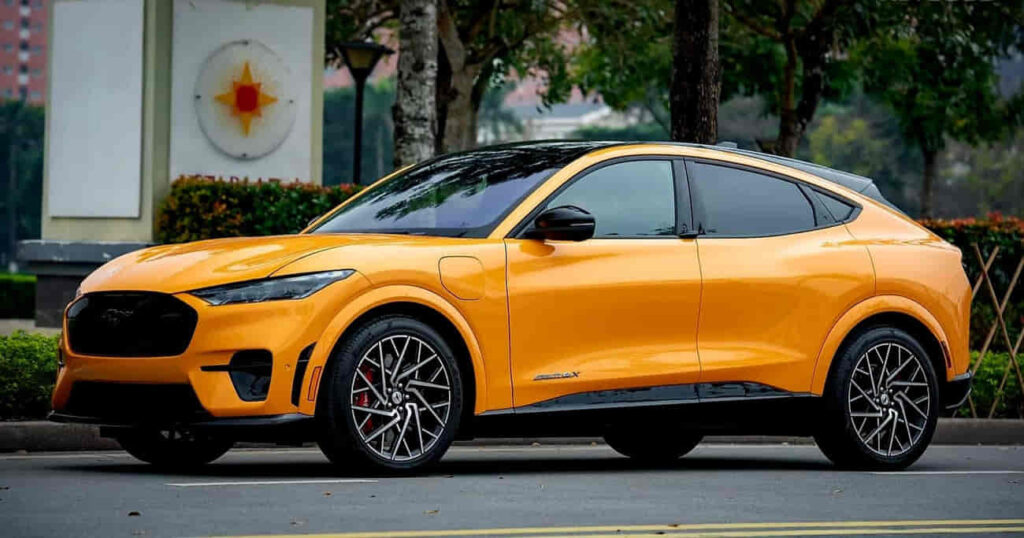
The Ford Mustang Mach-E has earned its reputation as one of the boldest and most distinctive alternatives to the Volkswagen ID.4. Blending the legendary Mustang spirit with modern electric innovation, it delivers a driving experience that feels both emotional and advanced. From the moment you press the accelerator, the instant torque and precise steering create a sense of confidence that few electric SUVs can replicate.
The cabin design reflects Ford’s shift toward digital sophistication. A large vertical touchscreen anchors the dashboard and integrates every major function, while high-quality materials and supportive seating provide comfort for long drives. Range varies depending on the model, with extended versions reaching up to 312 miles, making it highly competitive within the segment.
Compared with the Volkswagen ID.4, the Mustang Mach-E feels more performance oriented, appealing to drivers who want power and personality in equal measure. While pricing can climb higher for the top trims, the Mach-E delivers strong value through its driving dynamics and fast charging capabilities. In 2025, it continues to be one of the most compelling alternatives to the Volkswagen ID.4 for buyers seeking an EV that blends practicality with pure driving enjoyment.
Nissan Ariya
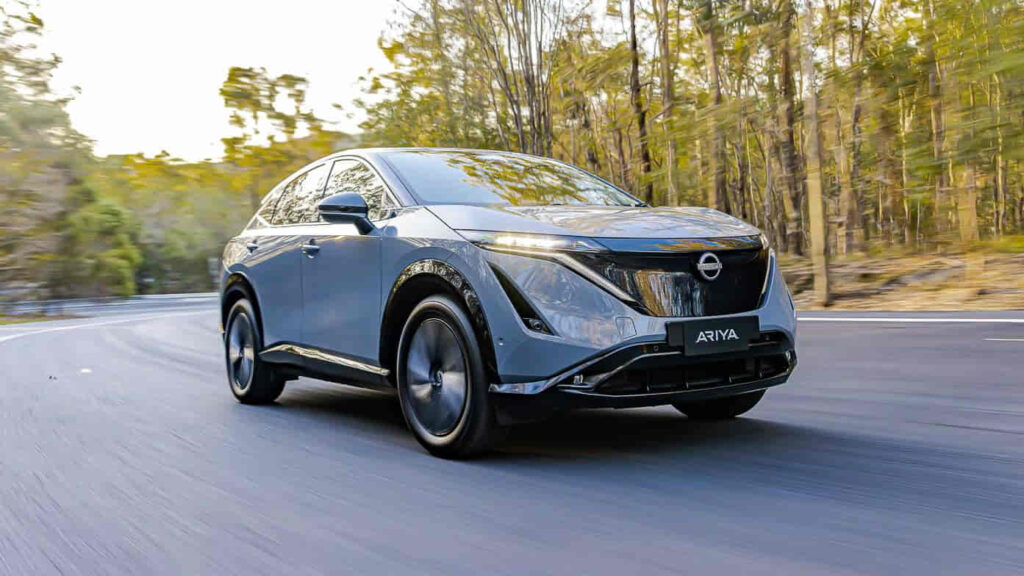
The Nissan Ariya stands as one of the most refined and comfort oriented alternatives to the Volkswagen ID.4, offering a calm yet premium experience that appeals to drivers who value quiet performance and design harmony. Its smooth contours and elegant proportions reflect a sense of minimalism that extends inside the cabin, where soft illumination and high grade materials create a truly serene environment.
The Ariya provides a driving experience focused on balance and confidence. With up to 304 miles of range and available all wheel drive, it performs effortlessly on both city streets and long journeys. The infotainment system feels intuitive, and its voice recognition and connected features elevate the daily driving routine into something genuinely enjoyable.
Compared with the Volkswagen ID.4, the Nissan Ariya feels more luxurious and refined, trading a bit of sportiness for greater sophistication. Its slower charging speed might not satisfy every driver, yet its overall comfort, build quality, and sense of calm make it a strong contender for those seeking a relaxed approach to electric mobility. As 2025 unfolds, the Ariya remains one of the most appealing and balanced alternatives to the Volkswagen ID.4 for families and comfort seekers alike.
Chevrolet Equinox EV
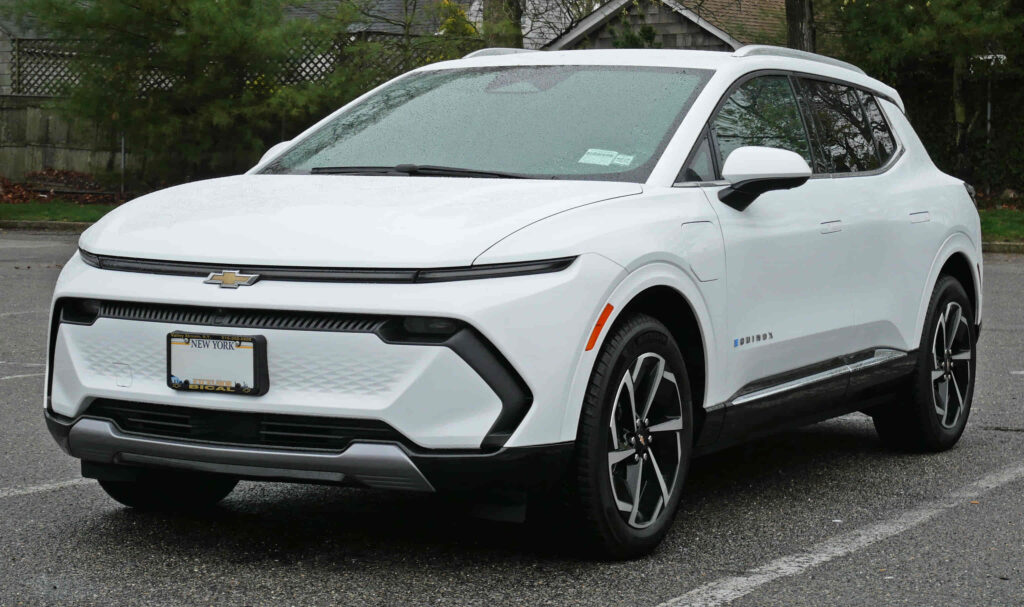
The Chevrolet Equinox EV has quickly gained attention as one of the most practical and affordable alternatives to the Volkswagen ID.4 in 2025. Designed with mass appeal in mind, it brings electric mobility to a wider audience without compromising on modern technology or driving comfort. Chevrolet’s focus on value makes this model particularly attractive to first time EV buyers who want reliability and range at a reasonable price.
Powered by GM’s Ultium platform, the Equinox EV delivers a strong combination of efficiency and versatility. Expected range estimates hover around 300 miles, giving it solid real world usability for both city commuting and longer weekend trips. Inside, the cabin feels open and welcoming, with a layout that prioritizes simplicity and usability rather than luxury excess.
When compared to the Volkswagen ID.4, the Equinox EV offers a more budget friendly path into the electric SUV market while still delivering competitive performance and safety technology. Its greatest strength lies in the balance between affordability and capability, proving that electric driving does not have to come with a premium price tag. For buyers seeking dependable and cost effective alternatives to the Volkswagen ID.4, the Chevrolet Equinox EV stands out as a smart and forward looking choice.
Volvo XC40 Recharge
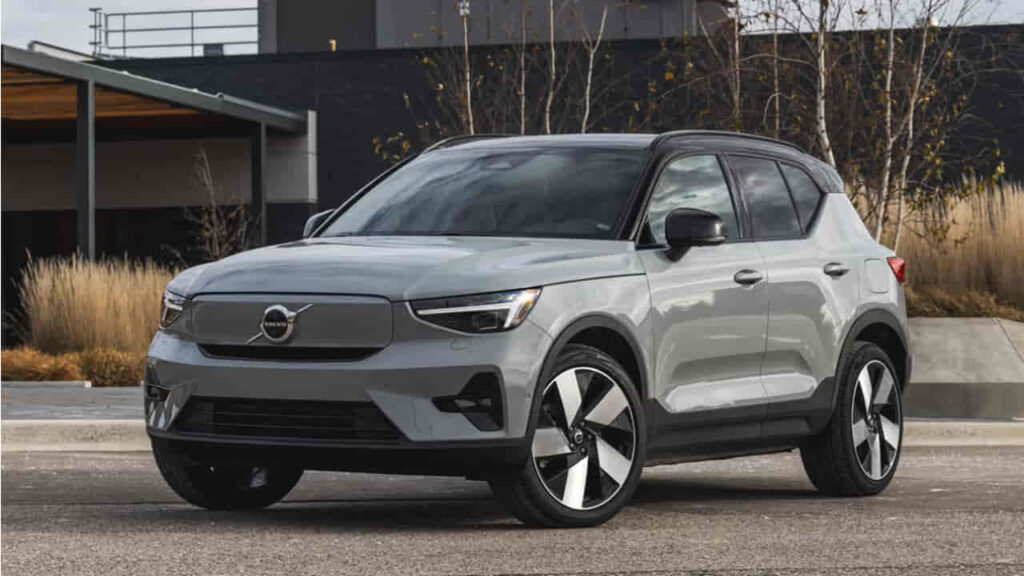
The Volvo XC40 Recharge presents itself as one of the most sophisticated and safety focused alternatives to the Volkswagen ID.4. With Scandinavian design principles guiding every detail, it embodies a sense of calm precision that instantly sets it apart. The exterior styling combines compact proportions with a confident stance, while the interior embraces clean lines, premium materials, and an intuitive layout that feels both luxurious and purposeful.
Performance wise, the XC40 Recharge delivers brisk acceleration and a solid electric range suitable for daily commuting and weekend escapes alike. Its refined suspension and well insulated cabin create a quiet, composed ride that reflects Volvo’s legacy of comfort and safety. Advanced driver assistance systems come standard, giving owners extra peace of mind on every journey.
Compared with the Volkswagen ID.4, the Volvo XC40 Recharge appeals to those who appreciate craftsmanship and thoughtful engineering more than minimalism or sportiness. It commands a higher price, yet the sense of quality and assurance it provides often justifies the investment. For buyers in 2025 seeking elegant and dependable alternatives to the Volkswagen ID.4, the XC40 Recharge stands as a blend of heritage, innovation, and modern sustainability.
Toyota bZ4X
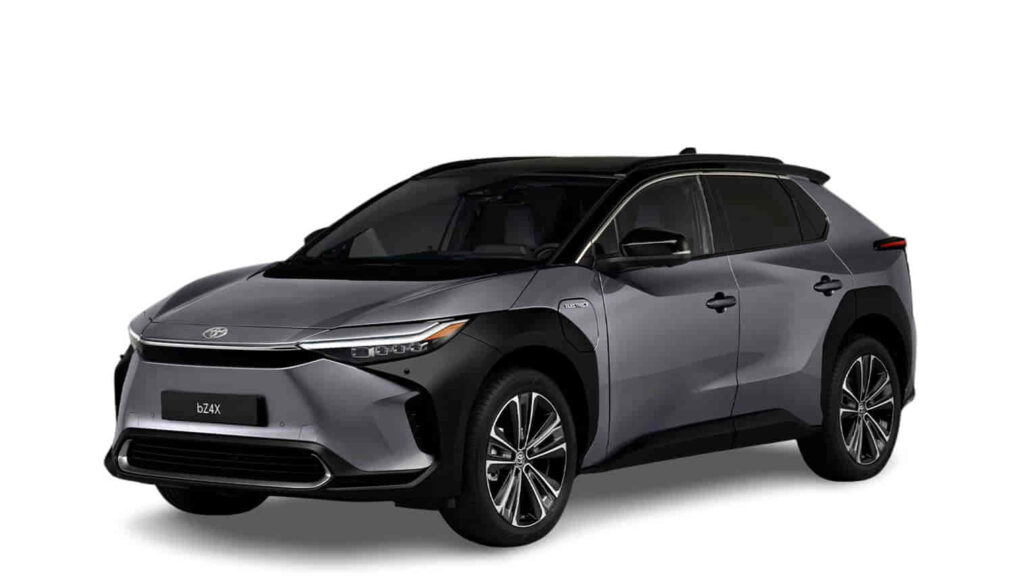
The Toyota bZ4X emerges as one of the most dependable and confidence inspiring alternatives to the Volkswagen ID.4. Built on Toyota’s new eTNGA platform, it represents the brand’s serious step into the electric future while preserving the qualities that have long defined its reputation: reliability, safety, and ease of ownership. The design is understated yet modern, reflecting Toyota’s focus on functionality rather than bold experimentation.
Behind the wheel, the bZ4X offers a calm and predictable driving experience. It is not designed to thrill but to reassure, providing smooth acceleration and balanced handling that make it ideal for families or urban commuters. The cabin feels thoughtfully arranged, with durable materials and an infotainment system that prioritizes clarity and responsiveness.
When compared to the Volkswagen ID.4, the Toyota bZ4X may lack the same dynamic flair or fast charging speed, yet it compensates through a reputation for long term reliability and low maintenance costs. For drivers who value peace of mind above all else, this model delivers exactly that. In 2025, it continues to be one of the most trusted and well rounded alternatives to the Volkswagen ID.4, appealing to pragmatic buyers entering the EV market.
Audi Q4 e-tron
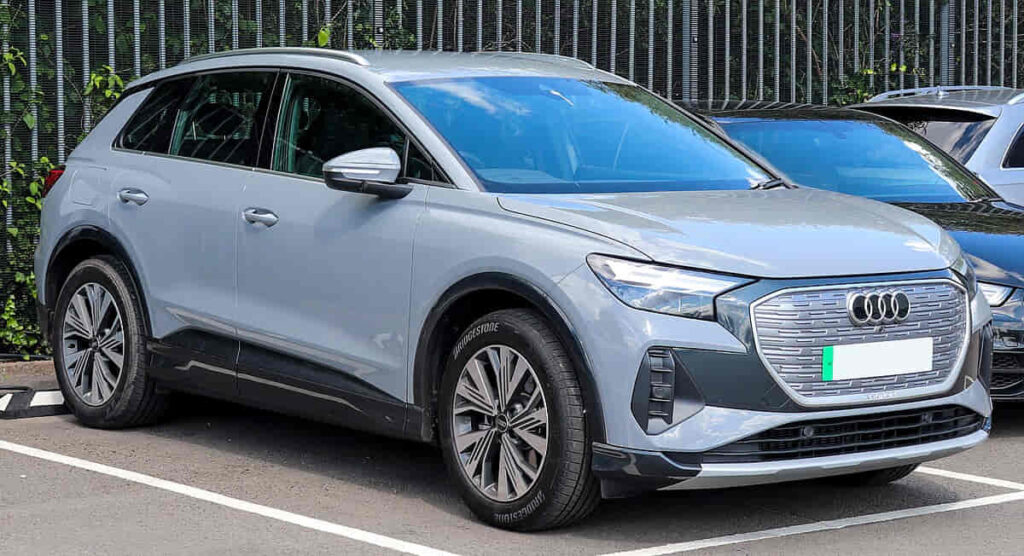
The Audi Q4 e-tron represents one of the most premium and well crafted alternatives to the Volkswagen ID.4, blending German engineering with a sense of luxury that feels both familiar and elevated. Built on the same MEB platform as the ID.4, it shares much of its underlying architecture yet refines every detail from the materials inside to the way it moves on the road. The result is a vehicle that feels meticulously tuned for comfort and sophistication.
The Q4 e-tron delivers a composed and quiet ride, with solid handling that inspires confidence even on longer journeys. Inside, the cabin showcases Audi’s mastery of interior design, featuring high quality finishes, ambient lighting, and a driver centric cockpit that combines technology with elegance. Every element, from the tactile feedback of the controls to the precision of the digital displays, reinforces the brand’s attention to detail.
Compared to the Volkswagen ID.4, the Audi Q4 e-tron provides a more refined experience and a stronger sense of prestige. While it commands a higher price, many buyers view that as an investment in craftsmanship and brand trust. For 2025, it stands firmly among the most desirable alternatives to the Volkswagen ID.4, delivering an upscale approach to electric mobility that remains true to Audi’s heritage.
Honda Prologue (2025)
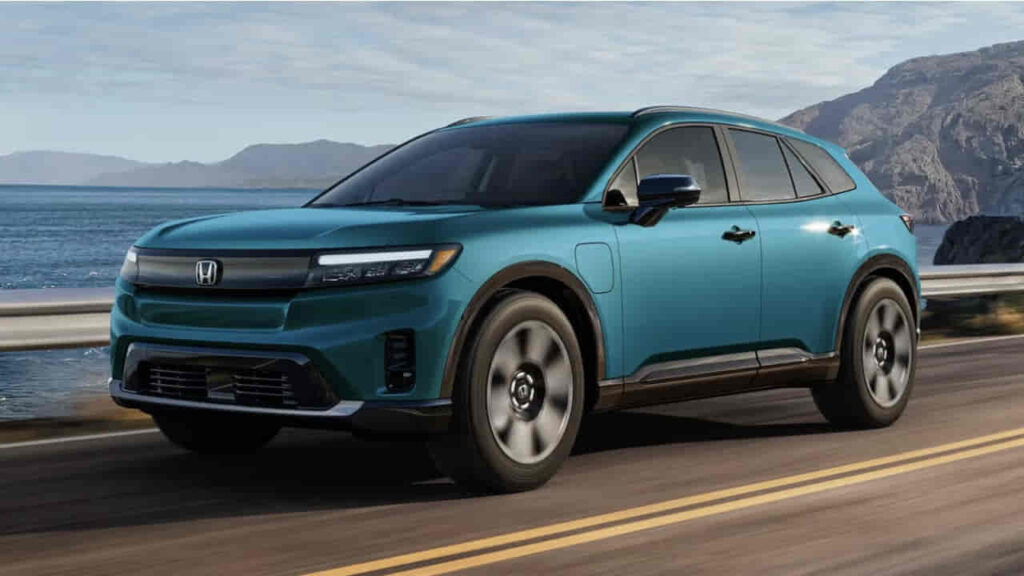
The Honda Prologue enters the electric SUV scene in 2025 as one of the most promising new alternatives to the Volkswagen ID.4. Developed in collaboration with General Motors and built on the Ultium platform, it combines Honda’s reliability with GM’s advanced electric architecture, resulting in a vehicle designed for both efficiency and everyday comfort. This partnership allows the Prologue to deliver an impressive blend of range, performance, and refinement from day one.
From a design perspective, the Prologue feels unmistakably Honda yet refreshed for a new era. Its clean lines and wide stance give it a modern and approachable look, while the cabin focuses on simplicity, visibility, and ergonomic design. Expected range figures near 300 miles position it well within the competitive EV market, giving drivers a balance between practicality and innovation.
Compared to the Volkswagen ID.4, the Honda Prologue offers a fresh perspective on what an electric SUV can be. It feels intuitive, reliable, and ready to meet the needs of everyday families transitioning to electric mobility. For buyers seeking new technology wrapped in familiar dependability, the Prologue clearly stands out as one of the most exciting and future ready alternatives to the Volkswagen ID.4 in 2025.
Conclusion
As the electric SUV market matures in 2025, it has become clear that drivers now have more meaningful choices than ever before. The Volkswagen ID.4 remains a strong contender with its balanced performance and everyday usability, yet the landscape around it has evolved rapidly. From Tesla’s innovation to Hyundai’s design, from Kia’s energy to Audi’s refinement, the range of alternatives to the Volkswagen ID.4 shows just how diverse and exciting electric mobility has become.
Each model featured in this guide offers a unique blend of range, value, and personality. Some emphasize speed and performance, others comfort and dependability, but all share the same goal — making electric driving more accessible and rewarding. The right choice ultimately depends on what matters most to you: technology, price, driving feel, or brand experience.
If the Volkswagen ID.4 has been on your shortlist but you are still exploring, now is the perfect time to test drive these competitors and discover which one feels truly aligned with your lifestyle. Electric vehicles are no longer just about going green; they are about freedom, comfort, and connection. Which of these Volkswagen ID.4 alternatives would you trust to lead your next journey?